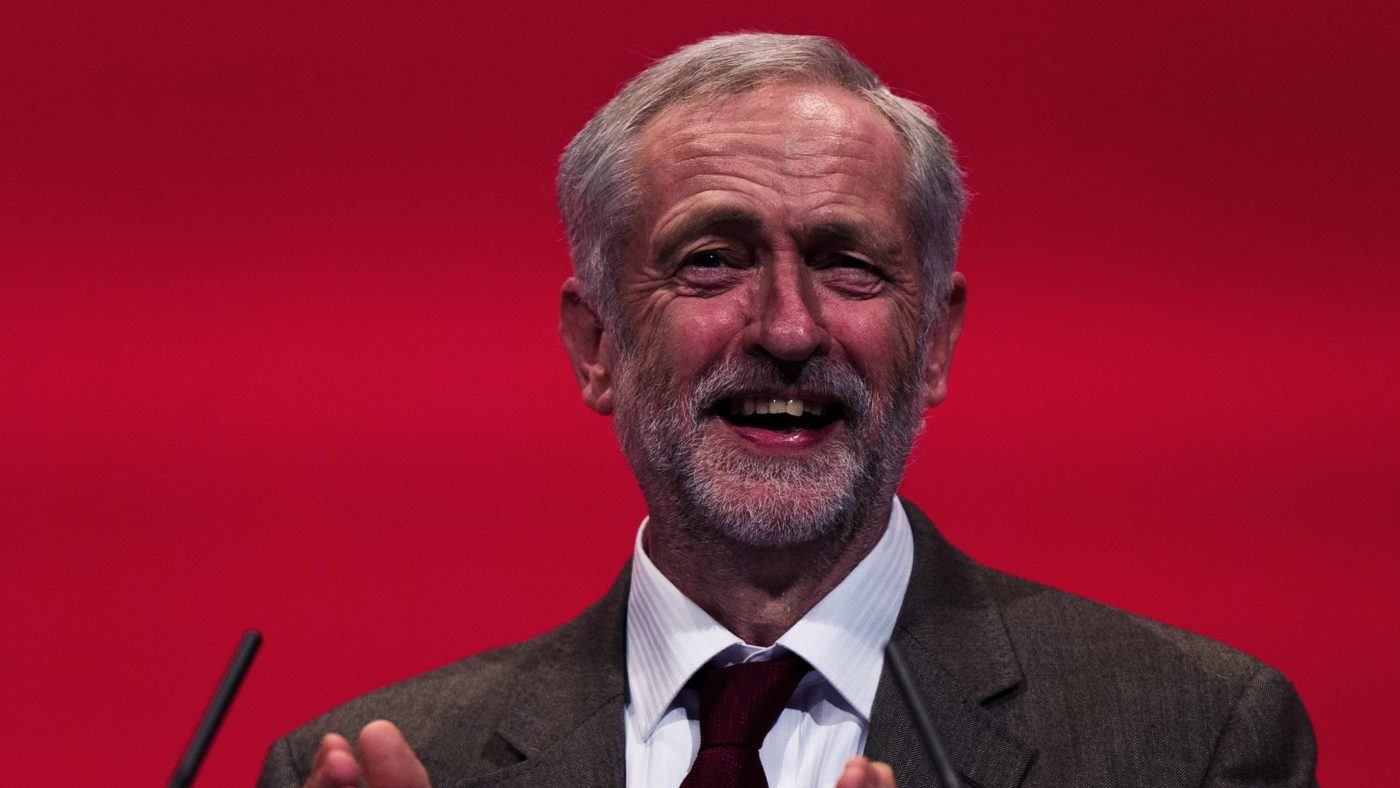It has come to something when an opinion poll reporting that Labour supporters think a Conservative prime minister is doing a better job than the leader of their own party no longer seems an astonishing development. But this is where we are.
Granted, Labour supporters are not greatly impressed by Theresa May but her approval rating amongst, remember, Labour supporters is still higher than Jeremy Corbyn’s. In another era this would seem crazy but at this particular moment in British politics it’s the kind of revelation that makes sense. Because, really, how else could it be?
That the Prime Minister leads a ramshackle government still struggling to come to terms with Brexit – whatever that means – is not the point either. Mrs May might not convince but at this moment she barely needs to. Her government is, literally, making it up as they go along and, again, this does not matter much. Because for once there really is no alternative. The British people know this.
Parties are stubborn things but they can still die. If Labour has not yet perished, it is surely on the brink of doing so. Just half of Labour’s 2015 vote – which was itself a grimly disappointing vote – would endorse the erstwhile people’s party if an election were held next week. That’s a striking testament to the power of brand loyalty and the strength of longstanding political allegiances. The spirit of “They’re my team even, perhaps especially, when they suck” is all that’s keeping Labour alive right now.
It is increasingly apparent that what has happened to Labour in Scotland is now happening to Labour in England. In Scotland, Labour finds itself squeezed by the Scottish nationalists on one side and by Ruth Davidson’s Scottish Conservatives and Unionists on the other.
Labour, which would much prefer the constitutional question to melt away, has nothing persuasive to say on the biggest, most fundamental, question in Scottish politics. It cannot win without regaining Yes voters, but winning their support costs them the support of the No voters without whom they cannot survive.
In like fashion, Labour must win support from Leave voters and Remain supporters. Unlike the Conservatives and the Liberal Democrats it cannot be defined by its attitude to Brexit yet, at the same time, it cannot say anything on the biggest, most fundamental, question in British politics that does not further alienate a vital part of its remaining constituency. Heads Labour loses; tails Labour loses too. It is a recipe for muddle and drift and the Micawberish hope that something – any bloody thing – will turn up to save the day. Or, rather, to stave off complete annihilation.
All of which helps explain why Labour has chosen to say nothing at all. Silence may be prudent in such circumstances – better to risk being thought an ass than to confirm the public’s worst suspicions – but it hardly makes the case for Labour as a potential party of government.
There is something to be said, even something to be admired, about a party that doggedly sticks to its beliefs come what may and regardless of those beliefs’ evident unpopularity. But the problem with Jeremy Corbyn is not so much his beliefs – though plenty of those are undoubtedly problematic – but that he is a hopeless vehicle for his own policies.
So hapless in fact, he makes Iain Duncan Smith’s stewardship of the Conservative party seem a triumph of Bismarckian proportions. It’s one thing being wrong but quite another to be so inept. And a politician who cannot even appear to stand up for himself is a politician who invites contempt. A party can survive mere unpopularity but it will be sunk by ridicule.
Which is where Labour finds itself. Electing Corbyn once was reprehensible, doing so twice was ludicrous. By doing so Labour’s membership sent a clear message to the wider electorate: we have no interest in representing you, far less in offering a plausible programme for government.
The public has taken the hint and the wonder is not so much that Labour is a dozen points behind in the polls but that as many as one in four voters are still prepared to say they will vote Labour at the next election. Make no mistake, this is Corbyn’s ceiling, not his floor. Things will have to get worse – much worse – before they get better.
And since Labour’s membership cares so little about the party’s electability there is no good reason for the public to care any more either. Labour has gone into its own version of internal exile and will not return for years yet. Corbyn, to be fair, has a mandate for this and he intends to use it.
This should concern us all, regardless of our own political preferences. A capable, coherent, opposition improves government. No government can ever be entirely honest but a plausible opposition at least helps mitigate against the dishonesty that’s an inescapable part of government. The fear of being replaced concentrates the mind.
And yet, sometimes the rot is so widespread and so deep – we are, for heaven’s sake, asked to believe Diane Abbott could be Home Secretary – that the structure is beyond repair. If Labour isn’t there yet it will, on current trends, be there soon. This is no longer even enraging; it is just what it is. A kind of tragicomedy without jokes that’s so bone dry you begin to think it must be satire.
Except it isn’t. A different Labour party would be worth saving and worth caring about. This one isn’t. Corbyn will be Corbyn and that will be that.


